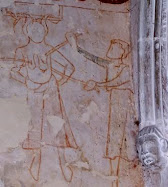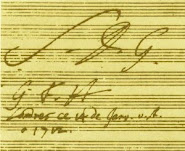
I am feeling awake and alive these days; it is a return I've anticipated. I can taste, feel, smell, and enjoy again. I can appreciate beauty and move freely. I actually ran up the stairs today, skipping steps to retrieve my laundry. It was glorious!!
While I have no desire to go back to a place where I feel empty and drained and sluggish and heavy, I don't want to lose my grip on the truth of how truly bereft, how terribly empty I am without Christ to fill me. Things that I thought came from myself like the ability to extend basic kindnesses or to practice selflessness really don't originate anywhere within me. They start with Him.
It was never more clear than when I had nothing in myself to call upon: it starts with Him. I'm not sure how to say it in a way that doesn't sound trite or pithy. But after starting each day at the end of myself, I got a crash course on leaning into Him moment by moment.
I am already seeing the ways in which I am defaulting to old habits and ways of being. I find that when I can lean upon myself, I do. When I insist on being strong, it invariably limits the ways in which the power of God can be made perfect in my weakness. Leaning into Him more fully is a lesson I am learning and one I suspect that I will continue to learn and re-learn over the course of my life.
If anything, I'm perceiving with greater clarity how concurrently painful and beautiful it is to let go, and how ready He is to fill us when we finally do.
I want neither a terrorist spirituality that keeps me in a perpetual state of fright about being in right relationship with my heavenly Father nor a sappy spirituality that portrays God as such a benign teddy bear that there is no aberrant behavior or desire of mine that he will not condone. I want a relationship with the Abba of Jesus, who is infinitely compassionate with my brokenness and at the same time an awesome, incomprehensible, and unwieldy Mystery.
Brennan Manning, Ruthless Trust
21 June 2008
leaning. learning. letting go.
Posted by
kirsten
at
3:11 PM
12
comments
![]()
Labels: breakthrough, new beginnings, reflections, wellness
07 June 2008
the psalms of david
 Save me, O God,
Save me, O God,
for the waters have come up to my neck.
I sink in the miry depths,
where there is no foothold.
I have come into the deep waters;
the floods engulf me.
I am worn out calling for help;
my throat is parched.
My eyes fail,
looking for my God.
[69:1-3]
I’ve been spending some time in the Psalms lately. David’s songs are potent, earthy, and raw; the words heavy-laden with anger and fear and sin and confession and blood and tears on the one hand, and ecstatic, elated with praise and joy and dancing on the other.
In his darker moments, I can imagine David on his hands and knees, digging up earth with his fingernails, chest heaving with sobs that threaten to make his sternum collapse, thick threads of spittle hanging from his mouth; he grips and tears at his hair; he presses the heels of his palms into his eyes, he scratches at his face. His throat becomes raw, his lips gummy. His cries come from a depth he cannot plumb and are swallowed by the emptiness around him.
For troubles without number surround me;
my sins have overtaken me, and I cannot see.
They are more than the hairs of my head,
and my heart fails within me.
[40:12]
We all know the story of the boy-turned-king, the warrior, the one God had hand-picked. We know the story of how he slew the giant with a rock and sling; we are familiar with his dalliance with Bathsheba. We’ve read of his enemies and how madly they pursued him, thirsty for blood.
Too often I’ve lost the heart of the man in the stories I’ve heard a hundred times; the flesh and blood human being is reduced to a caricature, a mere stick-figure. Familiarity turns those words ripped from his chest and dripping with his tears and blood into dead things, dry and stale, scattered on the wind like dust. But seasoned with my own tears, I find his songs new and fresh with a kind of life. David’s songs give me permission to be desolate, weary, tired, and questioning. Even the man after God’s own heart found himself wading in mire, his heart failing. He found himself overtaken and drowning, shackled to his sins and failures, weighted with grief. There were times he couldn’t see God at all.
Yet from this same heart, he was also able to say:
I will exalt you, my God the King;
I will praise your name for ever and ever.
Every day I will praise you
and extol your name for ever and ever.
Great is the Lord and most worthy of praise;
his greatness no one can fathom.
[145:1-2]
While the depths of his grief might seem to contrast sharply with his ecstatic exclamations of joy and praise, both were poured out of the same heart. David permitted himself to experience fully both bottomless despair and ecstatic, effusive rejoicing. He did not hide any of it from God or attempt to sanctify his experience, but allowed the truth of his heart gush forth whether it came out of a chest that was ready to cave in, or from one that felt weightless and winged.
And I find myself wondering if I can do the same: not simply to trust in his presence and goodness when my eyes are red and puffy, when my blood boils underneath my skin, when I’m clawing at the earth with my fingernails, but also to explode in praise, to commend His goodness when I feel as though I'm being crushed.
I do not know whether we need to experience the infinity of grief in order to know its counterpart in joy, but I do know this: David’s heart held the breadth of it and did not seek to contain it, this heart that was said to be like God’s own.
And that is truth I can grab onto.
Posted by
kirsten
at
10:10 PM
7
comments
![]()
.jpg)








.jpg)


